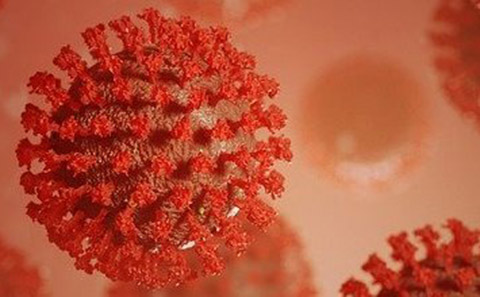COVID-19 RT-LAMP testing has high accuracy in individuals with and without symptoms

A “real world” evaluation of an improved sample preparation method for direct RT-LAMP testing for detection of COVID-19 conducted by NHS Trusts and universities has demonstrated high accuracy in individuals with and without symptoms.
The multisite clinical evaluation published in the Journal of Molecular Diagnostics defined the clinical performance of the RT-LAMP assay for COVID-19 testing using saliva and swabs, both directly (Direct RT-LAMP) on the sample and after extraction of the viral RNA (RNA RT-LAMP).
Direct RT-LAMP was performed on 559 swabs and 86,760 saliva samples, and RNA RT-LAMP was performed on 12,619 swabs and 12,521 saliva samples from asymptomatic and symptomatic individuals across healthcare and community settings. Compared with standard RT-qPCR tests, RT-LAMP tests are more scalable, and can turnaround results more rapidly as sequential changes of temperature are not needed.
For RNA RT-LAMP on swabs, the overall diagnostic sensitivity was as high as RT-qPCR testing. This supports the use of such testing in mobile testing units, as recently undertaken for testing of individuals from overseas attending high level meetings in the UK.
For Direct RT-LAMP, the overall diagnostic sensitivity was highest (85%) on saliva samples, with a specificity of 100% when compared to standard RT-qPCR testing. In tests on saliva samples containing a high viral load, the sensitivity of the test increased to 99%. This indicates that the test is highly effective in identifying infectious cases, including from people not displaying symptoms.
The findings demonstrate that RT-LAMP is applicable to a variety of use-cases, including frequent, interval-based testing of saliva with Direct RT-LAMP from asymptomatic individuals that may otherwise be missed using symptomatic testing alone.
Dr Veronica Fowler, a virologist who specialises in molecular detection methods and pioneered the optimisation and validation of the RT-LAMP technology for COVID-testing said:
“Many of the country’s leading molecular scientists and virologists have joined together to rigorously evaluate the Optigene RT-LAMP test in a variety of settings and confirmed its high accuracy in individuals with and without symptoms. The test is particularly effective in identifying people who are at risk of transmitting the infection to others, including people not displaying symptoms. Despite the emergence of a number of highly mutated variants, including Omicron, the RT-LAMP assay continues to perform with high accuracy due to particular features of how the test was developed.
“The application of using lower cost, rapid molecular tests, such as RT-LAMP to identify and control highly infectious viral diseases has been performed in the veterinary world for years. I am pleased through this huge collaborative effort that we have succeeded in transferring this concept and practice within the human infectious disease world for the benefit of saving people’s lives.”
Professor Keith Godfrey, of the University of Southampton MRC Lifecourse Epidemiology Centre and NIHR Southampton Biomedical Research Centre, who led the community based aspects of the evaluation said:
“It is extremely helpful to have the ‘real world’ demonstration of how the RT-LAMP test can be implemented in different settings. It provides an important example of how these tests can make a valuable contribution to overall COVID-19 testing capability.”
“The saliva-based RT-LAMP test has proven easy to use, effective and highly acceptable to people of all ages for regular testing. Research in Southampton* has shown that such testing can play a valuable role in controlling COVID-19 transmission in educational settings.”
* Evaluation of the expanded Southampton pilot study (Phase 2) for use of saliva-based lamp testing in asymptomatic populations: Final report, 16th November 2020. DOI: https://doi.org/10.5258/SOTON/P0045
Loop-mediated isothermal amplification (LAMP) is a single-tube technique for the amplification of DNA and a low-cost, rapid alternative to RT-qPCR. Reverse Transcription LAMP (RT-LAMP) combines LAMP with a reverse transcription (RT) step to allow the detection of RNA.